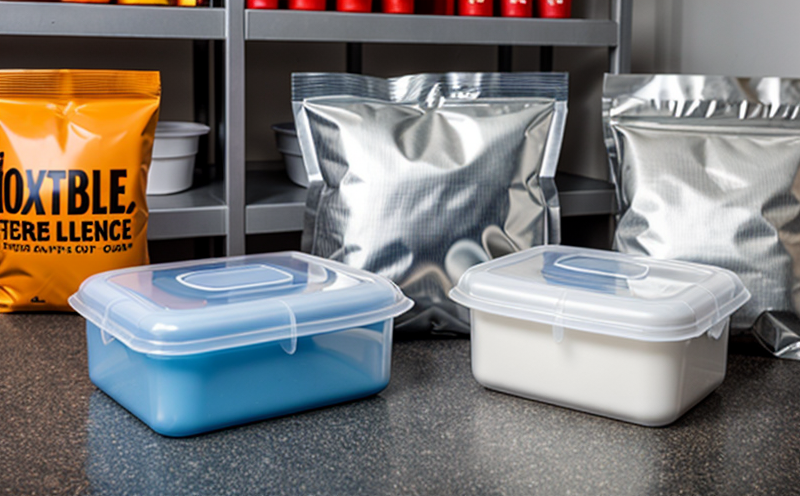ASTM F88-12 Heat Seal Strength Verification
The ASTM F88-12 standard is specifically designed to evaluate the heat seal strength of flexible packaging materials. This test is crucial for ensuring that seals within packages can withstand the stresses encountered during storage, handling, and use without failure.
Flexible packaging materials are often used in a wide range of products, from food items like snacks and beverages to pharmaceuticals and personal care products. The integrity of these seals is critical to maintaining product quality and safety throughout the supply chain. ASTM F88-12 provides a standardized method for testing the seal strength by subjecting specimens to defined temperature and humidity conditions before applying tension.
The test procedure involves preparing sample strips from the packaging material, with pre-formed heat seals. These samples are then conditioned under specific environmental conditions to simulate real-world storage scenarios. The sample is subsequently subjected to a tensile load until seal failure occurs. The force at which this happens is recorded as the seal strength.
Understanding and adhering to ASTM F88-12 ensures that packaging meets industry standards, thereby protecting product integrity and consumer safety. This test is particularly important for ensuring that seals are robust enough to prevent leakage or contamination during distribution and use.
The results of the ASTM F88-12 test provide valuable insights into the material properties and performance, which can inform design improvements and process optimizations. For instance, if a particular seal strength falls below acceptable levels, further investigation might be warranted to identify any issues in manufacturing processes or raw materials.
| Standard | Description |
|---|---|
| ASTM F88-12 | This standard specifies the procedure for evaluating heat seal strength of flexible packaging materials. |
| ISO 16073 | An international equivalent that provides similar guidelines for evaluating heat seal integrity in flexible packaging. |
Applied Standards
The ASTM F88-12 test is widely recognized and utilized by industries that rely on flexible packaging. This standard ensures consistency in testing procedures across different laboratories, thereby enhancing the reliability of results.
| Standard | Description |
|---|---|
| ASTM F88-12 | This standard specifies the procedure for evaluating heat seal strength of flexible packaging materials. |
| ISO 16073 | An international equivalent that provides similar guidelines for evaluating heat seal integrity in flexible packaging. |
Why Choose This Test
Selecting ASTM F88-12 Heat Seal Strength Verification is essential for several reasons. Firstly, it provides a reliable method to ensure that seals within flexible packaging materials are robust enough to withstand the stresses they will encounter during storage and use.
By adhering to this standard, manufacturers can demonstrate compliance with industry best practices, which enhances consumer trust and brand reputation. Secondly, the test results offer valuable insights into material performance, allowing for continuous improvement in production processes and raw materials selection.
The ASTM F88-12 test is particularly advantageous for companies that produce a wide variety of flexible packaging products. It ensures uniformity across different types of materials and helps identify any potential weaknesses in the manufacturing process. This can lead to significant cost savings by reducing material waste and improving yield rates.
Additionally, this test aligns with broader quality management systems, helping organizations meet regulatory requirements and improve overall product performance. By incorporating ASTM F88-12 into their testing protocols, companies can ensure that they are delivering high-quality products to the market consistently.
Environmental and Sustainability Contributions
- ASTM F88-12 supports sustainable packaging practices by ensuring that seals within flexible materials remain intact during environmental stressors like temperature changes and humidity variations.
- The test helps in reducing waste by identifying weak points early on, which can be addressed before large-scale production begins. This minimizes the need for rework or scrap.
- By enhancing the performance of packaging seals, ASTM F88-12 contributes to longer product shelf life and reduced contamination risks, thereby promoting food safety and environmental conservation.





